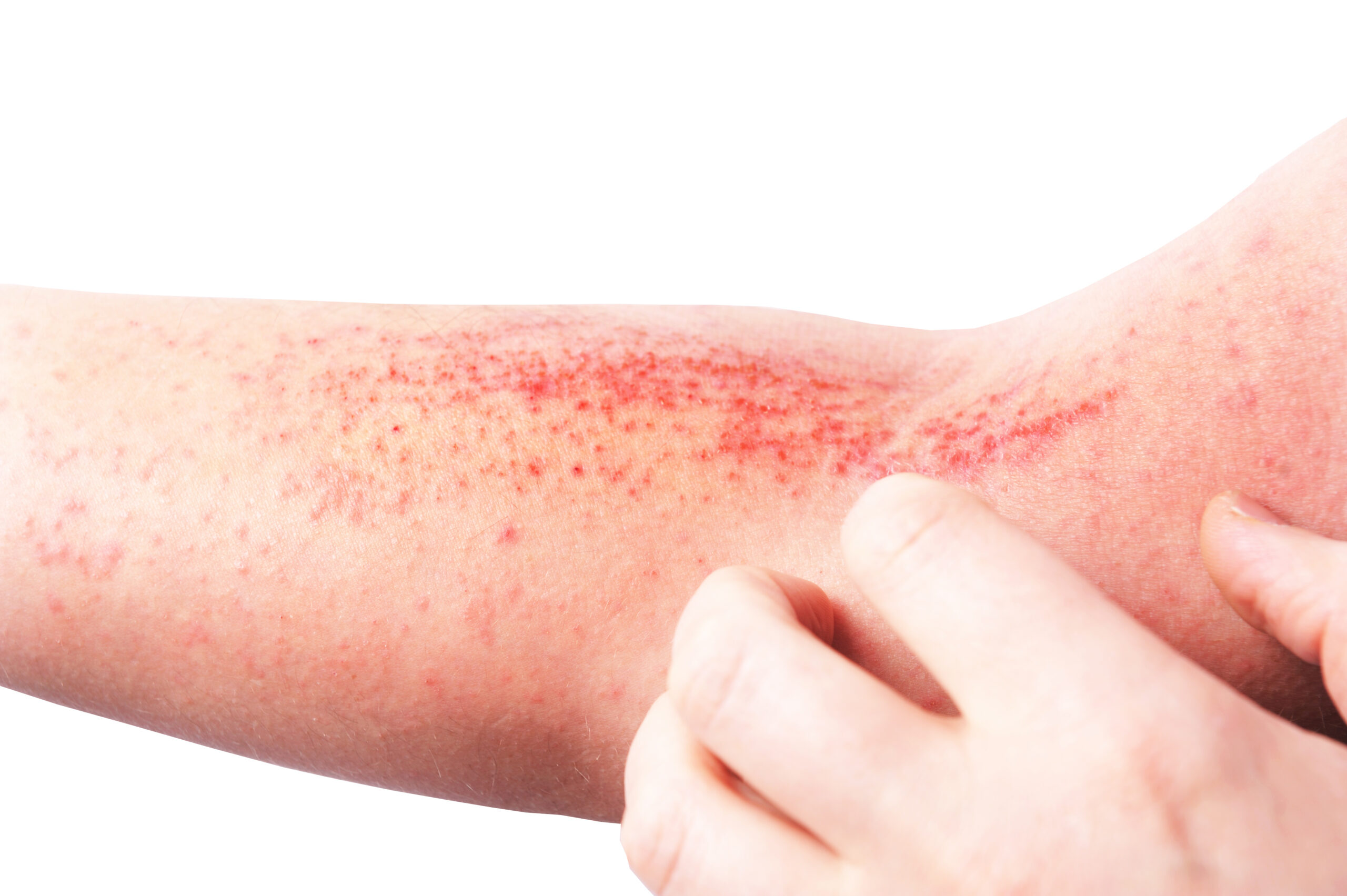Dermatitis
Dermatitis is a general term that describes an inflammation of the skin. Dermatitis can have many causes and occurs in many forms. It usually involves an itchy rash on swollen, reddened skin.
Skin affected by dermatitis may blister, ooze, develop a crust or flake off. The terms dermatitis and eczema are often used interchangeably. In some cases the term eczematous dermatitis is used. Dermatitis can be acute or chronic or both. Examples of dermatitis include atopic dermatitis (eczema), dandruff and rashes caused by contact with any of a number of substances, such as poison ivy, soaps and jewelry with nickel in it.

Acute eczema (or dermatitis) refers to a rapidly evolving red rash which may be blistered and swollen.
Chronic eczema (or dermatitis) refers to a longstanding irritable area. It is often darker than the surrounding skin, thickened (lichenified) and much scratched.
Dermatitis is a common condition that’s not contagious, but it can make you feel uncomfortable and self-conscious. A combination of self-care steps and medications can help you treat dermatitis.
See your doctor if:
You’re so uncomfortable that you are losing sleep or are distracted from your daily routines
Your skin becomes painful
You suspect your skin is infected
You’ve tried self-care steps without success
